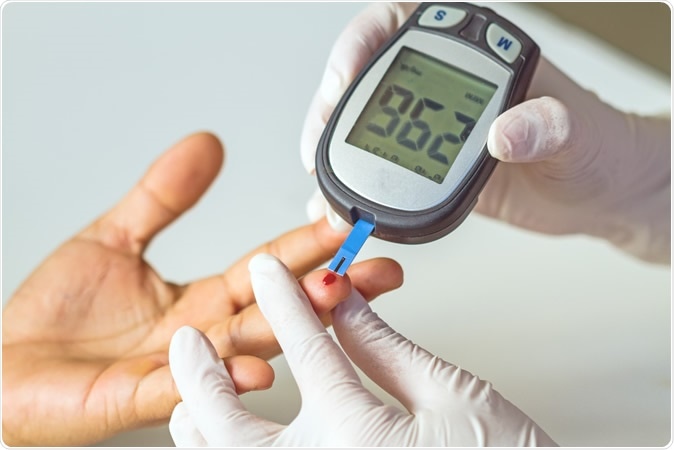A study reported in the journal Cell Metabolism on April 30 adds to the evidence that people with type 2 diabetes (T2D) are at greater risk of a poor outcome should they become infected with the virus that causes COVID-19.

Image Credit: pittawut / Shutterstock
But there is some encouraging news: people with T2D whose blood sugar is well-controlled fare much better than those with more poorly controlled blood sugar.
We were surprised to see such favourable outcomes in well-controlled blood glucose group among patients with COVID-19 and pre-existing type 2 diabetes.
Considering that people with diabetes had much higher risk for death and various complications, and there are no specific drugs for COVID-19, our findings indicate that controlling blood glucose well may act as an effective auxiliary approach to improve the prognosis of patients with COVID-19 and pre-existing diabetes."
Hongliang Li, Study Senior Author, Renmin Hospital, Wuhan University
More than 500 million people around the world have T2D. While it was clear that people with this condition fare worse with COVID-19, Li, and colleagues wondered what role a person's blood glucose control might have on those outcomes.
To find out, they conducted a retrospective longitudinal multi-centered study including 7,337 confirmed COVID-19 cases enrolled among 19 hospitals in Hubei Province, China. Of those, 952 people had T2D and the other 6,385 did not. Among those with diabetes, 282 had well-controlled blood glucose; the other 528 did not.
The data showed that people admitted to the hospital with COVID-19 and T2D required more medical interventions. Despite those interventions, they also had significantly higher mortality (7.8% vs. 2.7%) as well as a greater incidence of multiple organ injury.
However, those with well-controlled blood sugar and COVID-19 were less likely to die than those whose blood glucose was poorly controlled. Meanwhile, those with well-managed T2D also received less of other medical interventions including supplemental oxygen and/or ventilation and had fewer health complications.
The researchers say the new findings offer three main messages for people with diabetes:
- People with diabetes have a higher risk to die from COVID-19 and develop more severe complications after infection. Therefore, they should take extra precautions to avoid becoming infected.
- People with diabetes should take extra care to keep their blood sugar under good control during the pandemic.
- Once infected, patients with diabetes should have their blood glucose level controlled to maintain it in the right range, in addition to any other needed treatments.
The researchers say they will continue to study the relationship between T2D and COVID-19 outcomes. The hope is to learn more about the underlying biology that is leading to poorer outcomes for people with T2D and high blood sugar.
Source:
Journal reference:
Zhu, L., et al. (2020) Association of Blood Glucose Control and Outcomes in Patients with COVID-19 and Pre-existing Type 2 Diabetes. Cell Metabolism. doi.org/10.1016/j.cmet.2020.04.021.